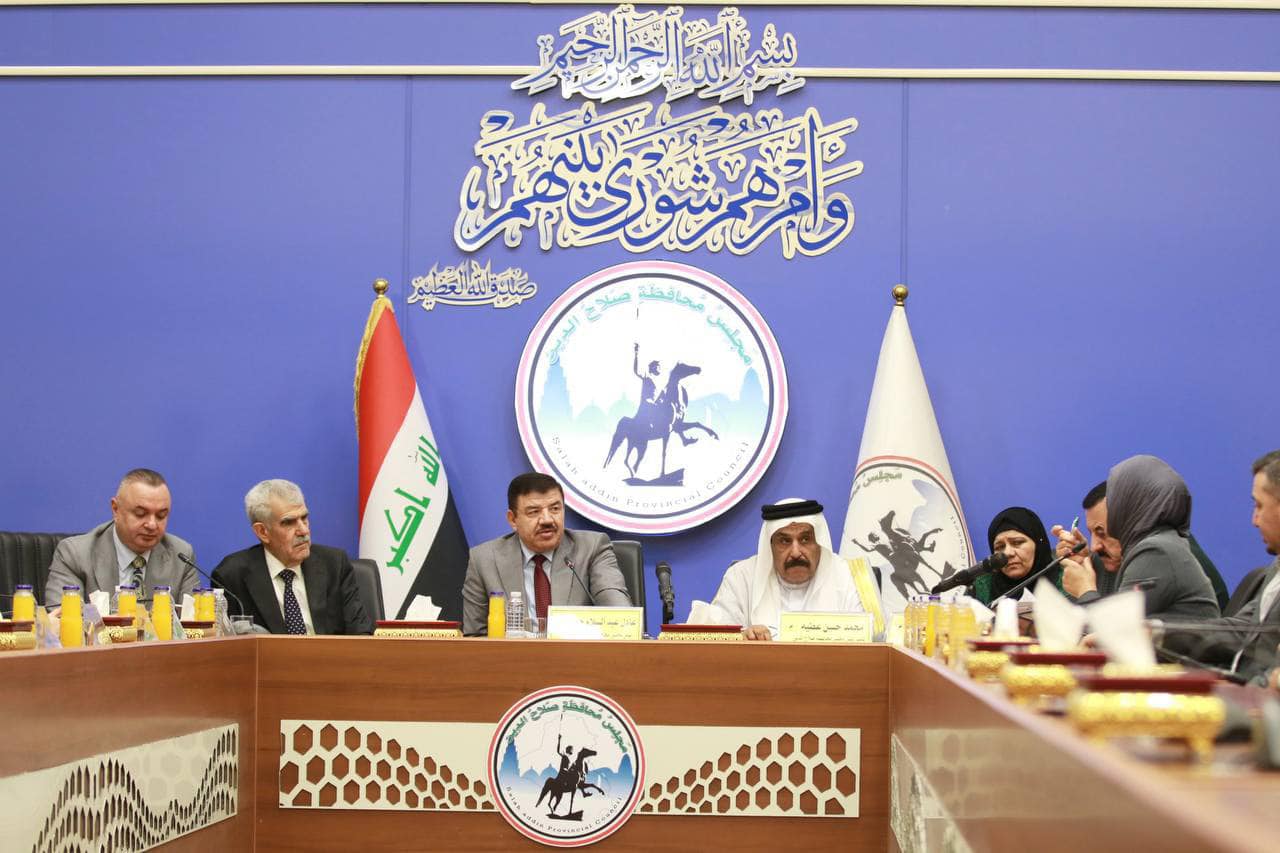The Salah al-Din Provincial Council decided the share of governmental positions for the components of the Tuz Khurmatu district, and the largest share was the Turkmen share, at 65 percent, followed by the Arab component with 25 percent, then the Kurdish component, to which 10 percent of the positions were allocated.
The sharing mechanism came after continuous negotiations and meetings between the three components of the Salah al-Din Provincial Council and was agreed upon during the past two weeks, according to Yassin Muhammad, a member of the Provincial Council for the Kurds.
Muhammad, who revealed the percentage of distribution of positions among the ethnicities, stressed in a statement to (KirkukNow) that, “The Turkmen dealt rationally with reality at all times. They tolerated the circumstances that arose and did not leave the positions they obtained, so they now obtained 65 percent of the positions.”
“But the Kurds lost all their positions after the events of October 16, 2017. We are gradually seeking to regain some of them and now we have obtained 10 percent, and the Arabs’ share was 25 percent.”
In Tuz Khurmatu, in addition to the position of mayor, mayor and police director, which are considered important positions, there are dozens of other important positions such as directors of government departments.
Muhammad said, “Another reason why the Kurds obtained a small percentage of positions in Tuz Khurmatu is the crisis of qualified candidates to hold positions.”
"In addition, the Turkmen and Arabs have influence in Baghdad and the balance of power is tilted in their favor, and this is what helps them settle important positions in Tuz Khurmatu in their favor from Baghdad, including the position of mayor, and police director."
The multi-ethnic district of Duz Khurmatu, located 70 kilometers south of Kirkuk and part of Salahaddin province, is the only disputed town of the province and one of the disputed territories between Erbil and Baghdad, home to 154,000 Turkmens, Kurds and Arabs.
The Kurds held the position of mayor of Tuz Khurmatu District for about 10 years, but after the events of October 16, 2017, they lost the position and many other positions, after the withdrawal of the Peshmerga and other Kurdish forces from the district following the deterioration of relations between the federal government and the Kurdistan Regional Government KRG due to the independence referendum in the Iraqi Kurdistan Region IKR. The Iraqi Security Forces ISF ousted the Kurdish parties and the Peshmarga. Thousands of families were displaced and hundreds of Kurdish citizens' homes and shops were burned.
Atef Ali Samin, a member of the Saladin Council from the National Movement Alliance (representing the Turkmen of Tuz Khurmatu), said, “The politicians agreed among themselves to decide the positions between the components. In fact, I personally reject this mechanism used to distribute positions in Saladin Governorate, because it did not take into account the criterion of votes.”
“The other problem is that the Tuz Khurmatu District did not get the positions it deserved from the positions in Saladin Governorate. Our efforts with the Kurdish Brotherhood resulted in obtaining the position of Director General of Investment in Saladin Governorate and it went to the Kurds.”
The Kurds have a single representative out of a total of 15 seats in the Saladin Governorate Council, and they also have one representative for the governorate in the Iraqi House of Representatives (both from the Patriotic Union of Kurdistan PUK).
In 2019, four local admin positions were restored to the Kurds in Tuz Khurmatu, but due to the Kurdish parties not agreeing to identify candidates, these positions were not filled, including the directors for the municipality and education.
The predominantly Sunni province of Salahaddin, about 135 kilometers north of the Iraqi capital, once home for Saddam Hussein, is under the control of Iraqi Security Forces ISF including the Shia-led pro-Iran paramilitary forces known as al-Hashid al-Shabi, the Popular Mobilization Forces PMF.
Samin said, “I have a lot of information regarding the agreement on positions, but I do not want to say more. In my opinion, it does not matter which nationality gets more positions. What matters is who will serve the residents of Tuz Khurmatu... coexistence to me is the most important.”
The Turkmen got the positions of mayor and police director, the Arabs got the positions of municipality and education directors, while the Kurds got the position of director of the district hospital.
There are 38 high-ranking positions across Salah al-Din Governorate, such as the position of governor, head of provincial council and their deputies, and general directors, most of which have been decided.
Turkmens are not satisfied with the senior position of Salahaddin province.
“The majority of the positions went to the Arabs, and even the Kurds got more positions than the Turkmen in (Salahaddin),” Atef said.
While Kurds admit they got more shares than their electoral entitlement.
“Out of a total of 38 positions, we Kurds obtained five positions... If we rely on the criterion of votes, we obtained more positions than other nationalities at the level of Salah al-Din Governorate,” Muhammad said.





